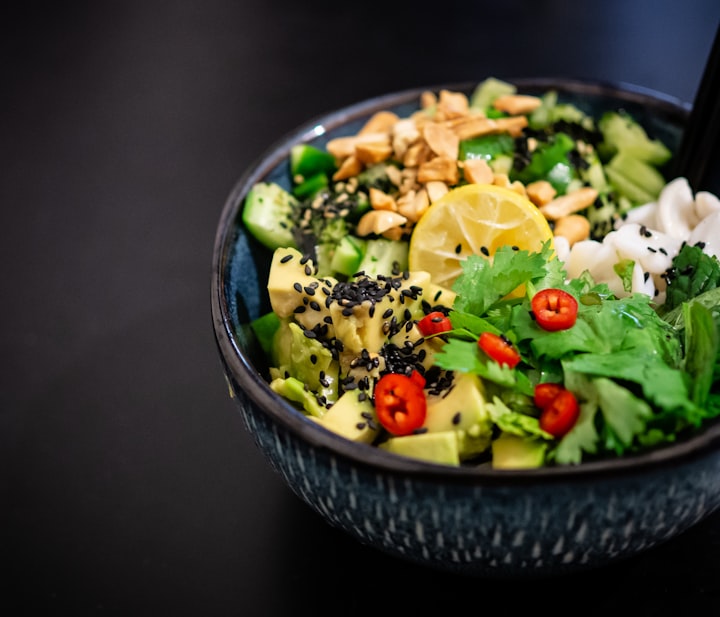Advantages of Keto Diet over other Low-Carb Diets
Benefits of Keto Diet

When it comes to low-carb diets, the keto diet is often compared to other popular low-carb diets like the Atkins diet, the South Beach diet, and the paleo diet. However, there are some key differences between the keto diet and these other diets that set it apart.
Fat Intake: The keto diet requires a much higher fat intake than these other diets, with a focus on healthy fats like avocados, nuts, and olive oil.
Carbohydrate Restriction: The keto diet also requires a much stricter carbohydrate restriction than other low-carb diets, typically limiting carbs to 20–50 grams per day.
Protein Intake: Additionally, the keto diet emphasizes moderate protein intake, whereas some other low-carb diets may allow for higher protein consumption. This is because consuming too much protein on the keto diet can actually kick you out of ketosis, the metabolic state in which your body burns fat for fuel instead of carbohydrates.
It’s important to understand these differences in order to choose the right low-carb diet for your individual goals and preferences. If you’re looking for a diet that emphasizes healthy fats and can help you enter a state of ketosis, the keto diet may be right for you. But if you prefer a less restrictive low-carb diet that allows for more protein or other types of carbohydrates, another diet may be a better fit.
==> Click for more Diet Plans <==
The importance of electrolytes on the keto diet
Electrolytes are minerals that carry an electrical charge, and they play an important role in many bodily functions, including muscle contraction, nerve function, and fluid balance. When you follow the keto diet, your body may excrete more electrolytes than usual, especially in the early stages of the diet. This can lead to electrolyte imbalances, which can cause symptoms like fatigue, muscle cramps, and headaches.
How to Prevent:
To prevent these imbalances, it’s important to pay attention to your electrolyte intake and make sure you’re getting enough of these minerals. The Three main electrolytes are sodium, potassium, and magnesium, and you can get them from a variety of food sources or supplements.
Sodium: Sodium is the most important electrolyte to monitor on the keto diet, as it’s often excreted more rapidly than other electrolytes. To ensure you’re getting enough sodium, you can add salt to your food or drink broth or bouillon.
Potassium: Potassium can be found in foods like avocados, spinach, and salmon. You can also take a potassium supplement, but it’s important to talk to your doctor before doing so, as too much potassium can be dangerous.
Magnesium: Magnesium is important for muscle and nerve function, and it can be found in foods like almonds, spinach, and dark chocolate. You can also take a magnesium supplement if you’re not getting enough from your diet.
==> Click for more info about Keto Diet Plans <==
In addition to these electrolytes, it’s important to stay hydrated by drinking plenty of water throughout the day. By paying attention to your electrolyte intake and staying hydrated, you can help prevent electrolyte imbalances and ensure that you feel your best on the keto diet.
The role of healthy fats in the Keto Diet
Healthy fats play a critical role in the keto diet. When you follow the keto diet, you drastically reduce your intake of carbohydrates and increase your intake of fats. This shift in macronutrient intake forces your body to enter a metabolic state called ketosis, in which it begins to burn fat for fuel instead of carbohydrates.
The importance of healthy fats in the keto diet cannot be overstated. Not all fats are created equal, and it’s important to choose healthy sources of fat that provide important nutrients and support overall health. Some healthy fats that are commonly consumed on the keto diet include:
Avocado: This fruit is high in heart-healthy monounsaturated fats and is a good source of fiber and potassium.
Olive oil: This oil is a rich source of monounsaturated fats and is a staple in the Mediterranean diet, which has been linked to numerous health benefits.
Nuts and seeds: Nuts and seeds are a great source of healthy fats, fiber, and protein. Some examples include almonds, walnuts, chia seeds, and flaxseeds.
Fatty fish: Fish like salmon, mackerel, and sardines are high in omega-3 fatty acids, which are important for brain health and may help reduce inflammation in the body.
Coconut oil: This oil is rich in medium-chain triglycerides (MCTs), which are easily converted into ketones by the liver and can provide a quick source of energy for the body.
==> Click for healthy diet plans <==
It’s important to note that not all fats are healthy for the keto diet. Processed and trans fats should be avoided, as they can increase inflammation and have negative effects on heart health.
In summary, healthy fats are an essential part of the keto diet. By choosing healthy sources of fat and limiting processed and trans fats, you can support your overall health and enter a state of ketosis that helps you burn fat for fuel and achieve your health and weight loss goals.





Comments
There are no comments for this story
Be the first to respond and start the conversation.